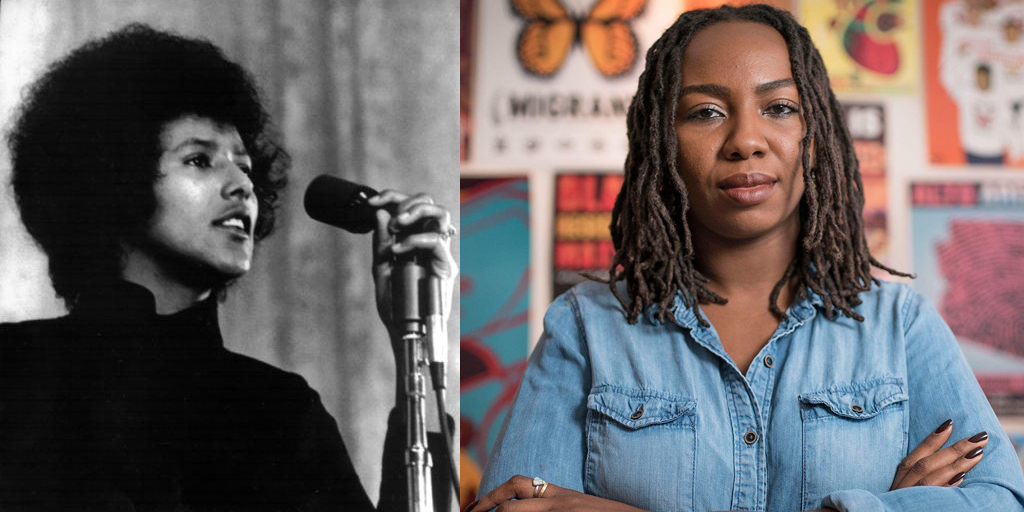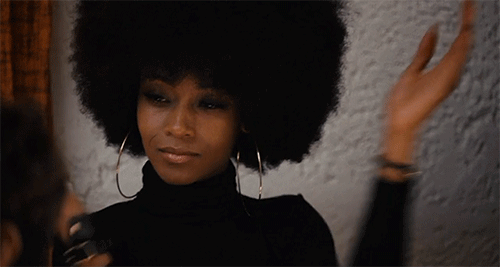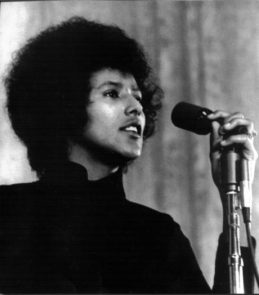Abortion rights, women of color, and LGBTQIA+ people are under attack. Pledge to join us in fighting for gender justice.
Black Women Built That: Activist Queens featuring Elaine Brown & Opal Tometi

In honor of Black History Month, “Black Women Built That” is a series celebrating Black women leaders who have shaped our social, political and cultural life. Without their contributions, our country would be unrecognizable.
In case you didn’t know, almost all social justice movements were and are carried on the backs of Black women. And yet, Black women have historically been erased or ignored in the history books. But when it comes to innovation, hard-work, and dedication in the fight for civil rights, Black women have always been at the forefront.

So because Black women seldom receive the credit for their amazing triumphs, we’re going to spend Black History Month (and let’s be honest, the whole year) giving Black women activists the spotlight they deserve! We’re going to dive in to the amazing work of two Black women who pioneered racial justice activism in the US: Elaine Brown and Opal Tometi.
Elaine Brown

You’ve heard of the Black Panther party, right? Well, Elaine Brown was the first and only chairwoman of the party. She held the position from 1974 to 1977 and worked to decentralize male dominance in the Black Panther movement. She did this by including issues and aspirations of Black women, as well as placing Black women in important positions of power throughout the party. As the Black Panther party was a movement led by mostly men, they actively disagreed with many of Brown’s decisions as leader, specifically her dedication to putting Black women in positions of power. She refused to back down and openly condemned sexism in the movement, saying:
“A woman in the black power movement was considered, at best, irrelevant. A woman asserting herself was a pariah. If a black woman assumed a role of leadership, she was said to be eroding black manhood, to be hindering the progress of the black race. She was an enemy of the black people…”- Elaine Brown
Her experience is a clear example of how Black women’s involvement in social justice movements have attempted to be stifled, but leaders like Brown still made their mark in history.
After leaving the Black Panther party, Elaine Brown continued to do work in the activism field, and specifically to reform the US prison system. In 1998, she co-founded the grassroots group Mothers Advocating Juvenile Justice to advocate for children being prosecuted as adults in Georgia. During the same year, she founded the Michael Lewis Legal Defense Committee to advocate for incarcerated Black youth. To continue her work in prison reform Brown co-founded the National Alliance for Radical Prison Reform in 2003, which aids thousands of prisoners in establishing housing after they are released on parole, raises money for prisoner phone calls, and helps prisoners find employment.
The work of Elaine Brown will continue to impact generations of Black people in the US, and pave the way for further progress in our nation. Without the courage and passion of Black women like Brown, present-day young Black women would not have a platform to engage, let alone lead the fight for change.
Opal Tometi
Speaking of present-day freedom fighters, Opal Tometi, immigrant justice advocate and co-founder of Black Lives Matter, is clearly walking down the road paved by Elaine Brown. After the murder of Trayvon Martin, Black communities were simultaneously outraged and deeply saddened without any guiding light on how to escape the onslaught of police violence and brutality. In response to this despair, #BlackLivesMatter was created by three co-founder Alicia Garza,Opal Tometi, and Patrisse Khan-Cullors, and the hashtag immediately went viral and was the source of controversy and conversations throughout the nation. The movement quickly defined its mission to “explicitly combat implicit bias and anti-black racism and to protect and affirm the beauty and dignity of all Black lives.” During the early days of the movement, Opal Tometi executed the social media strategy as well as created the online platforms. Together, the three co-founders crafted a way for Black people to have their voices heard and organized a massive movement that still persists and combats racism through 40 chapters nationwide.
In addition to her work with Black Lives Matter, Tometi is the leader of the Black Alliance for Just Immigration (BAJI), a national organization founded in 2006 that aims to combat racial justice and advocate for immigrant rights in the African-American, Afro-Latino, African, and Caribbean immigrant communities, which is more important than ever given the blatant racism and xenophobia of the Trump administration. Her work with BAJI includes leading organizing efforts for the first ever Black-led rally for immigrant justice and the first Congressional briefing on Black immigrants in Washington DC.
Elaine Brown and Opal Tometi give me hope. They make it clear that Black women can be bold, powerful leaders of social justice movements, whether they are wanted there or not. They are poignant examples of breaking barriers and conquering obstacles that seem impossible to overcome. No matter what is said about us or how we are erased from the history books, they can’t change that Black women built these movements, and they always will.




